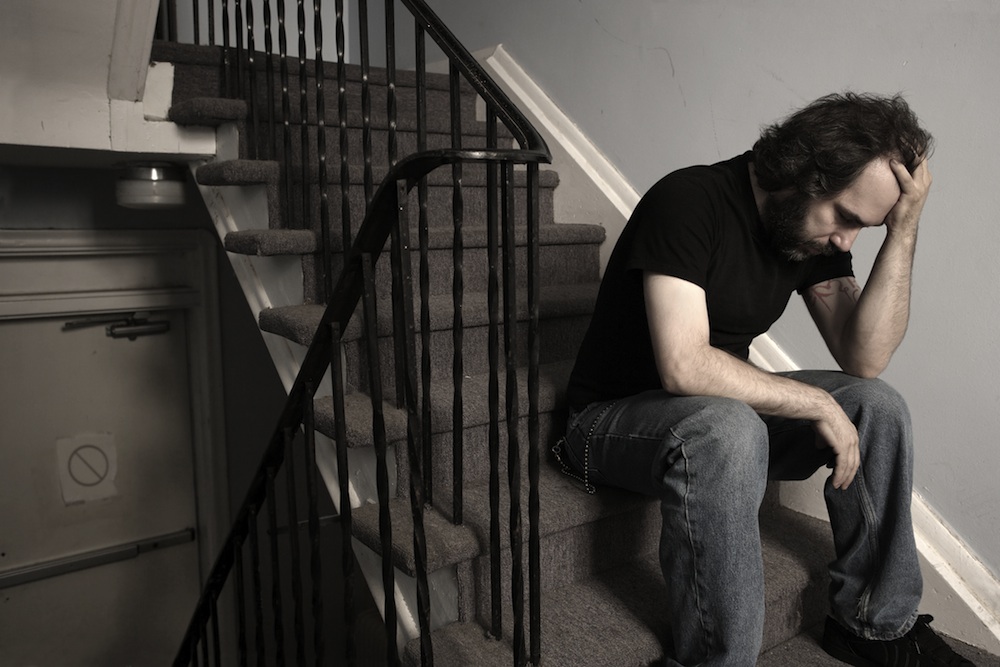Suicide Risk Linked to Poor Sleep in Older Adults

Get the world’s most fascinating discoveries delivered straight to your inbox.
You are now subscribed
Your newsletter sign-up was successful
Want to add more newsletters?

Delivered Daily
Daily Newsletter
Sign up for the latest discoveries, groundbreaking research and fascinating breakthroughs that impact you and the wider world direct to your inbox.

Once a week
Life's Little Mysteries
Feed your curiosity with an exclusive mystery every week, solved with science and delivered direct to your inbox before it's seen anywhere else.

Once a week
How It Works
Sign up to our free science & technology newsletter for your weekly fix of fascinating articles, quick quizzes, amazing images, and more

Delivered daily
Space.com Newsletter
Breaking space news, the latest updates on rocket launches, skywatching events and more!

Once a month
Watch This Space
Sign up to our monthly entertainment newsletter to keep up with all our coverage of the latest sci-fi and space movies, tv shows, games and books.

Once a week
Night Sky This Week
Discover this week's must-see night sky events, moon phases, and stunning astrophotos. Sign up for our skywatching newsletter and explore the universe with us!
Join the club
Get full access to premium articles, exclusive features and a growing list of member rewards.
Older adults who have trouble sleeping may face an increased risk of suicide, new research suggests.
In the study, people ages 65 and older who said they experienced sleeping problems — such as trouble falling asleep, or not feeling refreshed when waking up — were 1.4 times more likely to die by suicide over a 10-year period, than those who did not have sleep problems.
"Targeting disturbed sleep as a visible warning sign of suicide may … constitute a novel opportunity for improved [suicide] risk detection," the researchers wrote in the Aug. 13 issue of the journal JAMA Psychiatry.
In other words, doctors could ask about trouble sleeping to screen for suicide risk. Studies suggest that nearly three-quarters of older adults who commit suicide visit the doctor in the month before their death, according to the study.
When taking into account the study participants' symptoms of depression, which also increase the risk of suicide, the researchers found that people who experienced sleep troubles were still 1.2 times more likely to die by suicide. This suggests that poor sleep by itself is a risk factor for suicide, independent of depression, the researchers said.
In fact, poor sleep was a better predictor of suicide risk during the study than were symptoms of depression, although people with both sleeping trouble and depressive symptoms faced the greatest risk of suicide. [5 Myths About Suicide, Debunked]
Sleep and suicide risk
Get the world’s most fascinating discoveries delivered straight to your inbox.
Suicide rates worldwide have remained stable for decades, but have increased among middle-aged adults in the United States, the researchers said. A 2013 study found that the rate of suicide among people ages 35 to 64 increased 28 percent over the last decade.
Older adults are more likely to die from suicide compared to younger people, the researchers said. The issue of suicide in older adults was highlighted recently, with the news that actor Robin Williams died on Monday at age 63 from what authorities said was likely a suicide.
Previous studies have also linked sleeping troubles with an increased risk of suicide, but that research often asked people to think back about their sleep habits, instead of following the individuals forward over time, a better way to assess the link. The other studies also often did not take into account symptoms of depression, the researchers said.
In the new study, researchers followed more than 14,400 adults ages 65 and older living in Massachusetts, Connecticut, Iowa and North Carolina, for 10 years. At the start of the study, participants answered questions about how often they experienced sleep troubles, as well as questions used to assess symptoms of depression.
During the study, about 20 participants committed suicide. The researchers compared those 20 individuals to 400 people of about the same age who did not die from suicide.
People in the study who reported poor sleep were more likely to die from suicide than those who reported that they slept well, even after accounting for symptoms of depression.
Why the link?
The reason for the increased risk of suicide among people with sleep troubles is not clear. But the researchers hypothesized that a sleep deficit may "lower the threshold for suicidal behaviors," because it impairs the ability of the brain to process emotional information, the researchers said. Previous studies have shown that sleep deprivation can lead to more intense and more negative emotional responses to circumstances at work.
A 2013 study found that nightmares and unhealthy beliefs about sleep, such as the thought that a poor night's sleep will disturb sleep for the whole week, play a role in the link between insomnia and suicide risk.
"Suicide is the outcome of multiple, often interacting biological, psychological and social risk factors," study researcher Rebecca Bernert, director of the Suicide Prevention Research Laboratory at Stanford University, said in a statement. "Disturbed sleep stands apart as a risk factor and warning sign in that it may be undone, which highlights its importance as a screening tool and potential treatment target in suicide prevention," Bernert said.
Bernert and colleagues are currently conducting a study to examine whether treatment for insomnia can prevent suicidal behaviors and depression.
The study did not take into account some factors that may influence sleep or suicide risk, such as the participants' substance use or chronic pain, so more research is needed to examine how these factors affect the link. In addition, most of the participants in the study who committed suicide were white men, and so it's not clear if the findings apply to other populations.
Follow Rachael Rettner @RachaelRettner. Follow Live Science @livescience, Facebook & Google+. Original article on Live Science.

Rachael is a Live Science contributor, and was a former channel editor and senior writer for Live Science between 2010 and 2022. She has a master's degree in journalism from New York University's Science, Health and Environmental Reporting Program. She also holds a B.S. in molecular biology and an M.S. in biology from the University of California, San Diego. Her work has appeared in Scienceline, The Washington Post and Scientific American.
 Live Science Plus
Live Science Plus










